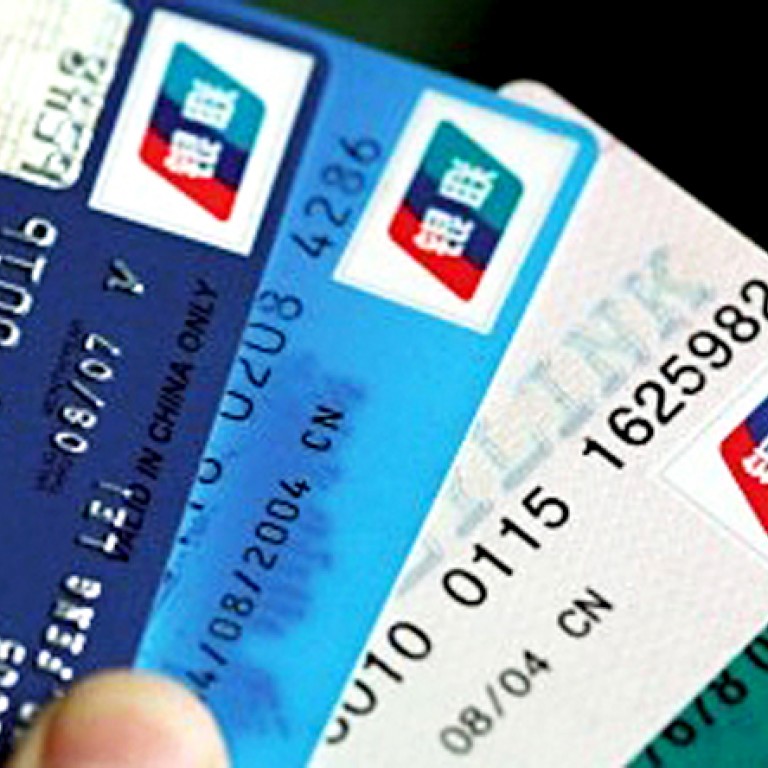
Mainland crackdown on illegal use of payment cards in Macau casinos
State-backed UnionPay announces measures to stem massive flight of capital from the mainland through illegal payment devices used by visitors
Macau is facing a major capital-flight crackdown amid Beijing concerns that tens of billions of yuan in illicit funds are being funnelled out of the mainland and into casinos in contravention of national currency controls.
China's state-backed bank payment card UnionPay last night announced a raft of measures in what it described as a "committed" drive to "combat overseas money laundering, capital flight and other illegal bank card use" in the former Portuguese enclave.
Gaming insiders and security sources in Macau told the that the anti-corruption drive launched by President Xi Jinping had taken the problem of payment card transactions to worrying levels, much of it driven by hundreds of illegal hand-held payment devices used in and around the booming casinos.
Analysts say the amount involved could have been more than 40 billion yuan (HK$50.3 billion) last year.
Mobile UnionPay payment devices from the mainland have illegally entered Macau at a rapid rate and are being used for unauthorised dealings that appear as domestic transactions, thereby circumventing currency controls. The mobile swipe devices are also used to evade tax on the mainland, which is why they require authorisation for use there.
Macau police have carried out a handful of raids in and around casinos in recent months and seized devices and cash, but the problem has reached dimensions that the central government could no longer ignore, said a well-placed gaming analyst.
"The growth in payment cards is huge, because of China's corruption crackdown. Mainland gamblers in Macau don't want to reveal how much they gamble, so they use cards," the analyst said. The phenomenon meant under-reporting of gaming revenue, he added.
Officially reported gaming revenue in Macau stood at US$45 billion last year, but the analyst estimated there was a further US$90 billion unreported.
A Macau consultant familiar with the pawnshop industry estimated 200 billion yuan of transactions are conducted in Macau each year through UnionPay cards, around 20 per cent of them through mobile devices.
Yesterday the Macau General Chamber of Pawnbrokers said the multibillion-yuan illicit trade had caused their business to slump by as much as 40 per cent. Indebted gamblers traditionally pawn their valuables but now have another readily available option.
A spokesman for the pawnbroking body said they would seek help from the Macau government. "We want the government to take enforcement action to combat such illegal transactions and set up a new law if necessary," he said.
Last night a UnionPay spokesman told the they had fully implemented a series of stringent risk-prevention measures and were establishing "an effective mechanism with regulatory and law enforcement bodies across borders to share risk intelligence and investigate suspicious practices".
Payment cards were widely used in Macau casinos, said John Bruce, Macau director of risk consultancy Hill & Associates. "It's to circumvent China's currency controls. Otherwise mainland gamblers cannot get enough money to gamble," he said.
A Macau government spokeswoman said: "UnionPay cards are not allowed to be used in Macau casinos. The recent sporadic cases of individuals carrying mobile machines for swiping payment cards were of a criminal nature and were dealt with by the police."


